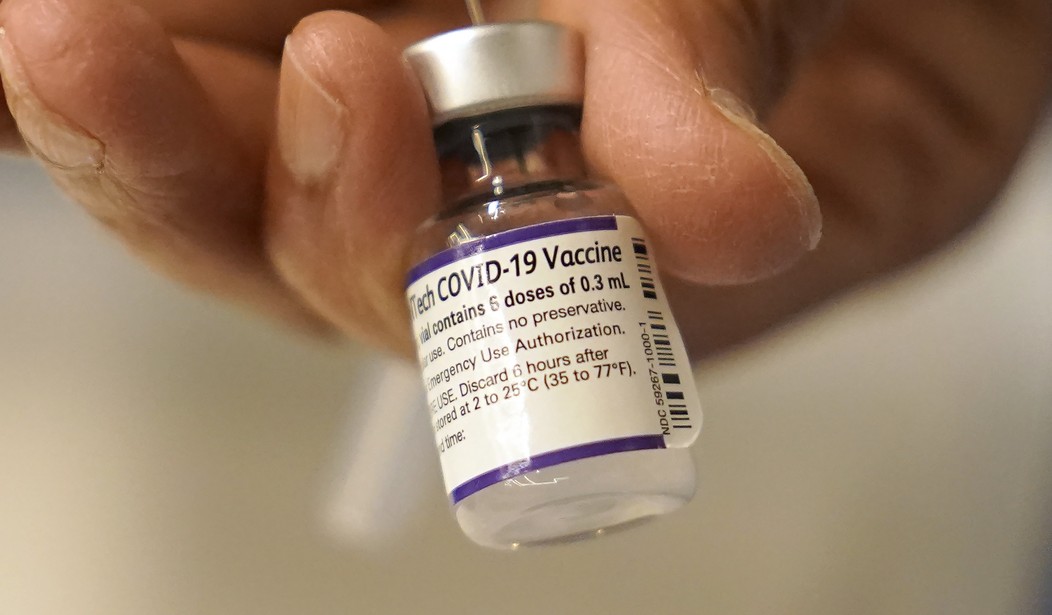The National Defense Authorization Act (NDAA) was passed in the Senate on Wednesday. The vote wasn’t even close – 88-11. The bill passed in the House on Tuesday with a vote of 363-70. Inside the legislation is a provision that spares troops from being dishonorably discharged for failing to comply with the COVID-19 vaccine mandate.
This is annual legislation and always receives strong bipartisan support. The NDAA sets the agenda and the budget for the US Department of Defense each fiscal year. The ten senators who voted against the bill is also a bipartisan list: Senators Braun, Gillibrand, Lee, Markey, Merkley, Padilla, Paul, Sanders, Warren, Wyden, and Booker all voted no. Their reasons for voting no vary. For example, Senator Padilla D-CA) wants more of a balance between defense spending and domestic spending as found in the Build Back Better bill. Senator Mike Braun (R-IN) didn’t support any bill without border wall funding. Senator Lummis (R-WY) did not vote. Senator Cory Booker changed his vote later, so the original vote tally went from 89-10 to 88-11. Perhaps Booker had to see which way the wind was blowing before making his final decision.
Republicans should not support any spending bills this year unless they include funding for the border wall.
— Senator Mike Braun (@SenatorBraun) November 16, 2021
Of note amid all the arguing over COVID-19 vaccination mandates, including mandatory COVID-19 vaccinations for members of the military, Senator Roger Marshall (R-KS) succeeded in restricting punishment for troops who refuse to get the COVID-19 vaccinations. He added language to the bill which states that members who are fired over the COVID-19 mandate must be honorably discharged or discharged under honorable conditions. Marshall is a former Army doctor. He sponsored the bill.
Marshall said it ‘ensure[s] servicemembers will be protected from a dishonorable discharge for choosing not to get the COVID vaccine.’
‘Simply put, a dishonorable discharge treats our heroes as felons. But, our American heroes deserve better,’ he continued. ‘I support the vaccine, but I also support those who are defending our freedoms and have carefully weighed their decision on whether to receive the COVID vaccine.’
Marshall is pro-vax but doesn’t think a one-size-fits-all government mandate is a way to go.
“Unfortunately the sledgehammer policy of the White House says that one size has to fit all,” Marshall said on the floor of the Senate before Thanksgiving, arguing for his provision. “They refuse to consider natural immunity.”
Critics say that Senator Marshall “muddied” the issue of discharge by the military.
In arguing for the provision, Marshall muddied the ways in which someone can be discharged by the military.
There are five different types of discharges from the military: honorable discharges, general discharges, other than honorable discharges, bad conduct discharges and dishonorable discharges.
On the floor of the Senate, Marshall talked about some of the consequences of a dishonorable discharge — which is the most severe discharge and can only happen if someone is court-martialed. It is unlikely members of the military will be court-martialed, which usually is reserved for crimes like murder and treason, for refusing the vaccine.
When Defense Secretary Austin announced the mandate in August, each branch set its own deadlines and measures of punishment for failure to get vaccinated. So far, only the Air Force has dismissed members.
The Army, for example, has said soldiers who don’t get vaccinated without an exemption could face suspension, a reprimand or be removed from promotion lists. The Marine Corps has said members will be “separated” from the service for refusing the vaccine. So far they have not granted any religious exemptions.
Senator Cramer (R-ND) says it is important that the worst-case scenario is off the table.
“We’re just taking that worst-case scenario off the table,” said Sen. Kevin Cramer, a Republican from North Dakota, who co-sponsored the amendment. “That relieves the commanders, it relieves the Department of Defense, it relieves even the joint chiefs of staff from making a different decision. And they should be relieved with that relief.”
The bill authorizes $770 in defense spending – $25 billion more than requested by Biden. That is about a 5% increase in spending from last year’s bill. Some changes in the compromise bill were made. In the bill passed in the House in September, there was a provision for women to register with the military as men do. That was taken out of the final language of the bill.
Party leaders in both the House and the Senate have agreed upon the final iteration of the bill, which includes a pay raise for both military service members and civilian employees with the Department of Defense. The bill also includes $30 million in military aid to the Ukrainian Security Assistance Initiative, according to a summary of the legislation from the House and Senate Armed Services Committee.
One provision included in the final version of the bill institutes changes to how the armed forces addresses sexual assault and harassment. The bill will prohibit military commanders from prosecuting sex offenses, a longtime request by victims’ advocates.
The NDAA has become law every year for six decades. Biden is expected to sign the bill.







Join the conversation as a VIP Member